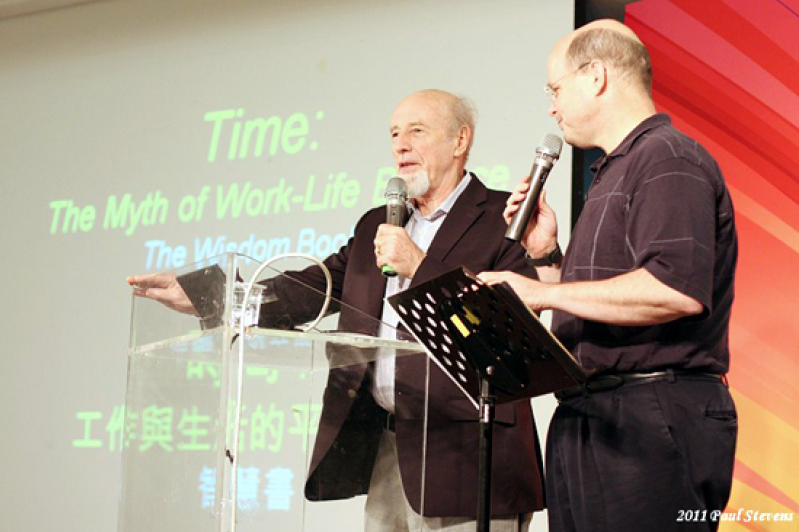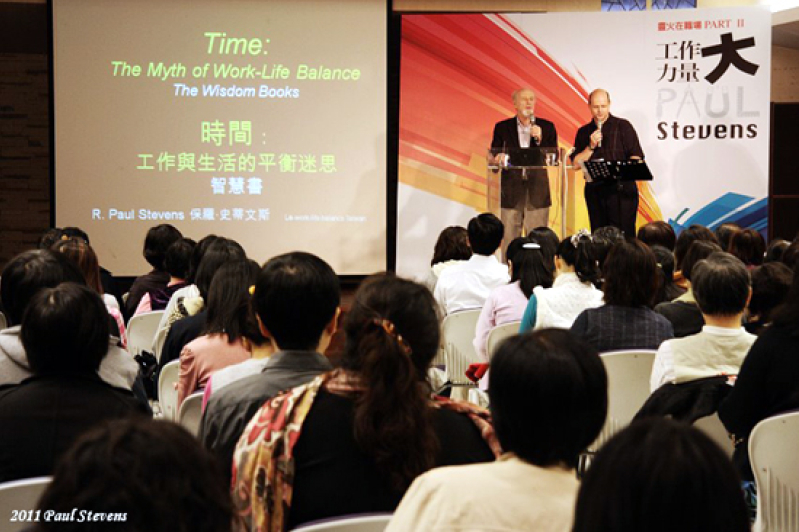


Most people today spent more time at work than at home, whether one’s willing or unwilling. Thus the topic of how Christians can practice their faith at work and in the market place is becoming an ever-increasingly popular discussion topic.
Vancouver-based market place theologian and mentor Rev. R. Paul Stevens was invited by Campus Evangelical Fellowship and Grace Baptist Church to travel to Taiwan as the keynote speaker for a three seminar held from November 28-30, 2011.
Stevens has been a pastor for 20 years (Montreal and Vancouver), a student counselor with IVCF, a business person (Habitat Woodcraft) and a professor. From 1999 until 2005, Paul was the David J. Brown Family Professor of Marketplace Theology and Leadership at Regent College, Vancouver, BC.
In the workshop on Christian market place, Stevens referred to the book of Ecclesiastes to explain about time management. While Ecclesiastes covered many questions – wisdom, work, money, enjoyment, culture, etc. – the majority of the text is focused on the subject of time.
“God created time (a gift), which is good, and when holiness was first mentioned in the Bible, it was about time (Genesis 2:3). All creation fell because of sin, and, as a result, time became twisted, but, inside of Christ, there is full redemptive grace, where even our experience in time has been redeemed.”
Stevens said that we are managers who are given time, not the owner of time, and we will be giving an account to God on how we’ve managed our time.
In Ecclesiastes 8:5, it says “For there is a proper time and procedure for every matter.”
“Thus we always have enough time. If you often feel that you don’t have enough time, then it is probably because you are doing too many things that God doesn’t want you to do,” he said.
To those who can’t seem to find time for anything else than work, Stevens suggested to not organize our work and lives through a tasks list; for example, on Monday, do this, on Tuesday, do this…rather make use of a network form that is interdependent - placing God as the center of your life, then surrounding that (leisure) with studies, God’s people and ministry, family, work, and relying upon each other interdependently.
Furthermore, Stevens emphasized the importance of placing priorities, such as family time and Sabbath time, and the practicing observing the Sabbath. He said that Sabbath is not only to attend service at church, but it includes three important meanings: prayer – connecting with God; establishing peace – brining peaceful calmness (Mark 2:23 – 3:6); leisure – (Israel’s celebration, Deuteronomy 14:26).






